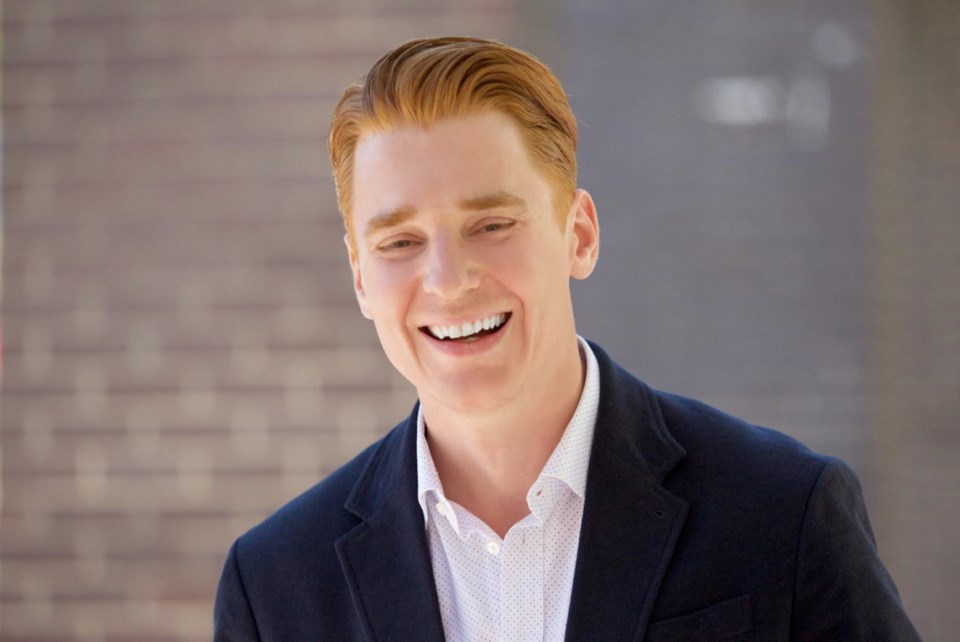What: Music at Wentworth Villa: Isaiah Bell, tenor
When/where: Saturday, Nov. 2, 7:30 p.m.; Sunday, Nov. 3, 2:30 p.m.; Wentworth Villa (1156 Fort St.)
Tickets: $40, students $25. Online at eventbrite.ca
What: Maurice Duruflé’s Requiem
When/where: Saturday, Nov. 2, 6 p.m., Christ Church Cathedral
Tickets: Admission free; collection taken
Tenor Isaiah Bell enjoys considerable international success, though he continues to make Victoria his home and performs here from time to time in recitals and as a soloist in choral-orchestral works.
Bell earned a bachelor of music degree at the University of Victoria in 2008 and before long was developing a major professional career.
He has collaborated with choreographer Mark Morris at the Tanglewood Festival and the Brooklyn Academy of Music; has worked with many major opera companies and festivals in North America and Europe, in Baroque, standard and modern repertoire; and performs often in concerts all over North America.
Bell last performed here in March 2018, in the Victoria Philharmonic Choir’s performance of Bach’s B-minor Mass.
Since then, his work has included a Monteverdi opera in Toronto, two appearances at Carnegie Hall, a performance with the National Arts Centre Orchestra and appearances at the Caramoor Festival and the Innsbruck Festival of Early Music. In October last year, in Toronto, he had a lead role in the Canadian Opera Company’s première production of Rufus Wainwright’s Hadrian.
Bell’s last solo recital here, in February 2018, offered an opportunity to hear him up close, when he joined pianist Anna Cal to perform Schubert’s song cycle Winterreise in the great room of a private heritage house.
This weekend, he will be back home to perform another set of Schubert songs: Schwanengesang (Swan Song), which Schubert composed in the fall of 1828, shortly before his untimely death.
(The 14 songs of Schwanengesang do not constitute a true cycle and we do not know how Schubert intended to use them. They were collected, ordered and titled by the firm that published them posthumously, in 1829.)
Joined again by Cal, Bell will perform the complete Schwanengesang interspersed with folksongs (French-Canadian, American, Irish, Welsh), in order, he says, “to contrast the Romantic mode of self-expression with a more collaborative, community-based kind of music-making.”
The folksong arrangements are by Britten, Healey Willan and Bell, who is himself a composer, of works including song cycles and operas.
Once again, the venue will be appropriately intimate — Wentworth Villa, the restored heritage house and architectural museum whose music room seats about 100.
Wentworth’s concerts tend to sell out, and, at last report, the Sunday afternoon concert was tending in that direction. Fortunately, Wentworth, in a welcome departure, is mounting this program twice to meet demand. Also, waiting lists are taken and can be accessed online (wentworthvilla.com); usually some last-minute ticket buyers can be accommodated.
In June, incidentally, in Toronto and Vancouver, Bell performed an original solo theatre show with music, The Book of My Shames, which he developed with support from Pacific Opera Victoria.
He will perform it here next spring as part of Intrepid Theatre’s UNO Fest.
Maurice Duruflé’s Requiem, composed in 1947, is a popular piece. Since I began inhabiting this space, in 2009, it has been performed here at least five times, by the Victoria Philharmonic Choir (twice), the Victoria Choral Society, the CapriCCio Vocal Ensemble and the Victoria Baroque Players. (In the latter’s defence, the work incorporates early-music elements, notably Gregorian chant.)
The music of this Requiem, which runs about 40 minutes, is serene, meditative, luminous, not dark or dramatic. Conspicuously absent among the nine movements is the fire and brimstone of the Dies irae (“day of wrath”) portion of the traditional Catholic Mass for the Dead.
While not devoid of spiritual struggle, the Requiem ultimately conveys (in Duruflé’s words) “the idea of peace, of faith and of hope.”
This exquisitely beautiful piece is singularly appropriate to an atmosphere of quiet, dignified remembrance. On Saturday, it will be performed by the choir of Christ Church Cathedral, conducted by Donald Hunt, the cathedral’s director of music, with the assistant director, Mark McDonald, on the organ. (In 1948, Duruflé transcribed his original orchestral accompaniment for organ.)
This will be a liturgical rather than a concert performance, part of a special solemn high Mass for All Souls’ Day, an occasion particularly suitable for a Requiem, since it is a time in the Christian calendar when people come together to remember loved ones who have died.



